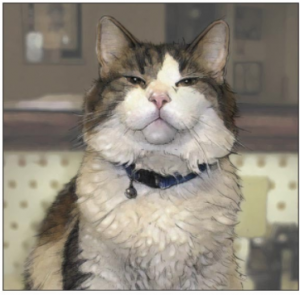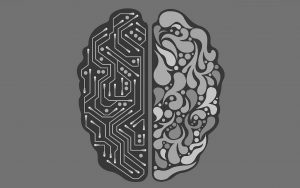In society, there are many omens associated with impending death. Some may say they had a dream about death while others may associate death with the portrayal of the grim reaper. In the case of Steere House nursing home in Rhode Island, impending death is in the form of a black and white cat named Oscar. He was adopted as a kitten by the medical staff and his sharp acumen has never led him astray. As soon as the doctors see Oscar curl up next to a patient, they inform families to come visit their loved one for one last time. Out of the 50 patients the cat has cuddled up next to, all 50 have died within a short span of time after their visit with Oscar.
This story was first published in 2007 in the New England Journal of Medicine and has stuck with oncologist, Dr. Mukherjee, since. While he may not have the ability to smell the air of death like Oscar, his medical knowledge has helped him predict the viability of a patient’s condition. However, what happens if your predictions are wrong?
In the case of a 32-year-old plumber (patient X) suffering from esophageal cancer, treatments and surgery left this patient with a good prognosis. While there were no signs of tumor left in his body after surgery, Dr. Mukherjee prudently approached the topic of relapse. It was unlikely that the cancer would return; however, the small chance of a relapse still remained. Dr. Mukherjee believed that it might be better for X to have a conversation with his family about this possibility and plans for the future. X was reluctant to follow through with this because he had just defeated cancer and what was the point in worrying about a distant (and unlikely) future anyways? Two months after X was released from the hospital, he relapsed and only the highest doses of painkilling drugs that left him spending his last living weeks in a coma-like state could treat it. His family was devastated and accused the doctor of misleading them about his diagnosis.
Armed with their medical knowledge and results from medical tests, doctors still have a difficult time predicting the death of their patients. For some physicians, they are able to accurately predict how much longer their patients have to live, others tend to underestimate this time, or even overestimate it. This variability makes it difficult to find “the sweet spot of palliative care.” However, what if a computer with an algorithm could predict how long you have left to live?
In 2016, a Stanford medical team and an engineer developed an algorithm that could be taught to identify patients that had 3 to 12 months to live. This was the ideal window of time for doctors to treat patients in the manner that was most effective and appropriate for the patient. Any time less than three months was not enough time to prepare for death and more than twelve months could place an unnecessary strain on the already limited resources in hospitals. As the algorithm underwent a deep learning process and absorbed patient data from more than 100,000 cases, the results were startlingly accurate. Computers using this algorithm were able to correctly predict which patients were going to die within 3 to 12 months nine out of ten times.
However, what is it that this algorithm has that doctors don’t? They both have access to medical information such as a patient’s diagnosis, how many medical tests are ordered, procedures conducted, prescriptions ordered, and the duration of stay in the hospital. Yet, this algorithm, that was recently developed, was better at predicting which patients had 3 to 12 months to live than physicians. It turned out the analyses differed. In the case of a patient diagnosed with bladder and prostate cancer, he was assigned a high probability of 0.946 of impending death. While doctors did not consider the patient’s MRI scan of his spinal cord as a sign of impending death, the algorithm recognized this as a predictor and was able to accurately predict the amount of life left in the patient.
The development of this “dying algorithm” is a huge step in technological advancement. From a medical perspective, it allows physicians to administer palliative care. From a patient perspective, it gives them ample time to discuss goals and futures with their loved ones. However, this also opens up a different side to medicine. What happens when a computer with a dying algorithm is able to understand death better than most humans, including your doctor? Would this result in a decrease in trust in physicians and turn into machine vs. doctor phenomenon? While this may be an issue in the near future, there is much room for growth in both the algorithm and physicians in predicting impending death. So how would you like to be told when you’re going to die? Would you rather be told by a fluffy black and white cat that will cuddle up next to you, an analytical computer spewing algorithmic probabilities, or a human M.D.?




2 responses to “Cats, Computers, or Doctors: Who’s the best at predicting death?”